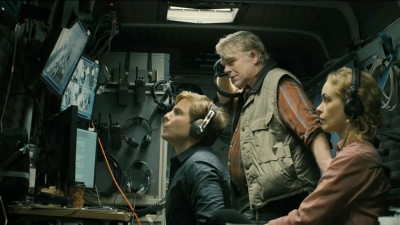Recently, I bought and watched the movie A Most Wanted Man. As I’m oft to do I began formulating my opinion on the movie as the ending approached.

“It’s good flick, but a bit slow,” I thought.
I think most movies need to generate a certain velocity with the stories they’re telling. And while A Most Wanted Man told a good story there was no “velocity” to push the story forward through to the ending. Then I took a step back and thought again, “If this were the first episode of a TV series I’d have thought it was brilliant, would be telling all my friends about it and wouldn’t be able to wait for the next episode.”
How messed up is that?
Ultimately, A Most Wanted Man is probably going to be remembered as the last starring performance by actor Philip Seymour Hoffman who died before the release of the film. Based on a book by grand spy novelist John le Carré (Tinker Tailor Soldier Spy), A Most Wanted Man takes place in Germany where a secret division of government spooks lead by Günther Bachmann (Hoffman) is following a Russian who’s inherited millions of dollars and the Germans suspect he might donate that money to terrorist causes. Much of the film deals with Bachmann following the money while battling elements of his own government who wants to arrest and question the Russian now lest he disappear and even the CIA who operate with their own motives in mind.

A Most Wanted Man is kind’a like the spy version of the TV series The Wire, and until I realized that connection I thought it was a much lesser film that it really was. In fact, coming to this realization might just make me question a lot of assumptions about movies I’ve been making since, well, forever.
Not much of A Most Wanted Man is action. It’s a lot of Bachmann’s group following the Russian and trying to figure out what he and his German lawyer Annabel Richter (Rachel McAdams) are really up to. And as the film progresses and people like Richter find themselves caught up in something they have no real part in, the question becomes how far are governments allowed to go to keep the public safe if it means steamrolling its citizens?
When it comes to movies I’ve always thought that they were different than TV series. TV series generally have a lot more story and a lot less action than with films. That’s partly because TV shows are usually telling stories over many years while movies are mostly self contained stories told over a few hours. And movies generally have bigger budgets than TV series so I suppose that too lead to me thinking that movies should be different, somehow “bigger” than TV shows.

But after watching A Most Wanted Man and realizing that if it were a TV show I’d think it was brilliant but since it was a movie it was only so-so made me realize that I need to start thinking about the two generas the same way.
Some movies do have more money to spend than TV shows meaning that they can do things with spectacle that TV shows usually cannot do on their budgets. But on the same hand, does that matter? Is A Most Wanted Man any less of a work since it has more in common with a great TV series than a cruddy movie that just happens to look great? I think not.
All this does make me wonder about all the movies I’ve written off for being slow and boring over the years, if they were really telling good stories, but it was just me and my bias over what I thought movies should be like that was really getting in the way of me enjoying them? From now on I’ll have to watch movies with a different eye than in the past.
